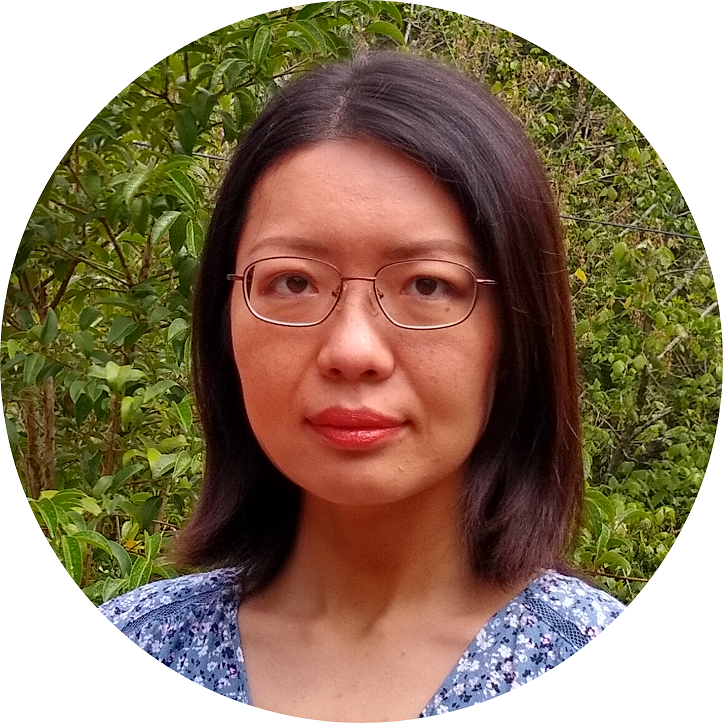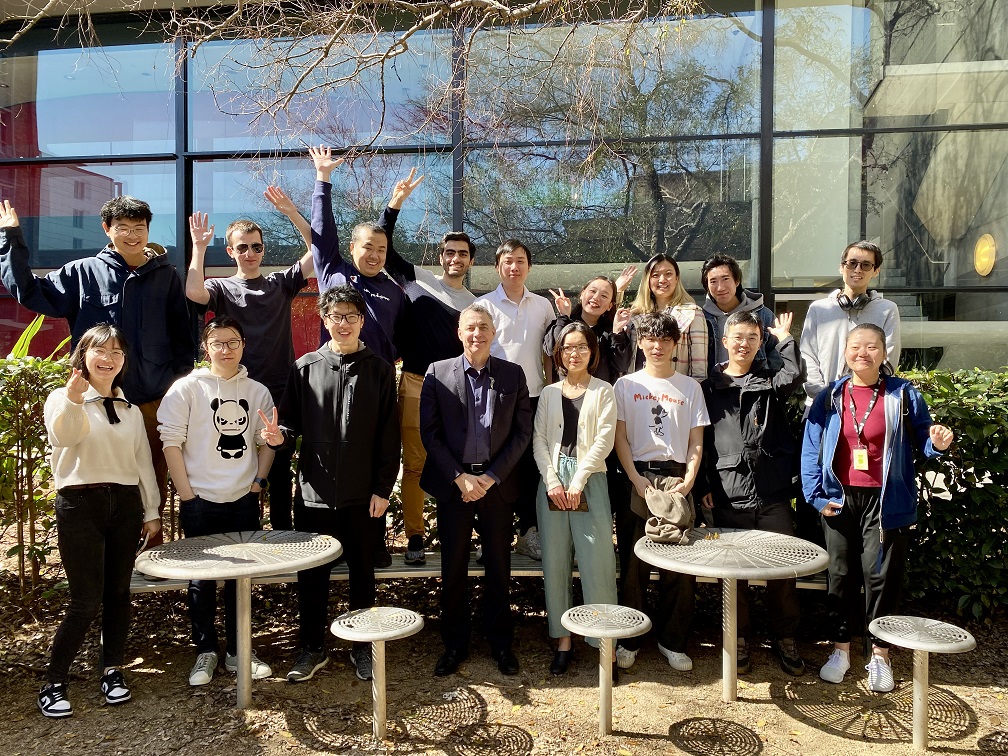 |
Yang Song
ARC Future Fellow, Scientia Associate Professor
Associate Head of School (Research)
Co-Director, iCinema, UNSW
Research Area: AI and Computer Vision
School of Computer Science and Engineering
University of New South Wales
Office: Room 401E, Building K17
Email: yang.song1 AT unsw.edu.au
Google Scholar
UNSW Researcher
LinkedIn
|
 |
About Me
I am an ARC Future Fellow, Scientia Associate Professor and Associate Head of School (Research) in the
School of Computer Science and Engineering,
Faculty of Engineering, UNSW Sydney.
I graduated with a BEng in Computer Engineering from
Nanyang Technological University, Singapore,
and obtained a PhD degree in Computer Science from the
University of Sydney in 2013.
I received the highly competitive Australian Research Council (ARC) Discovery Early Career Researcher Award (DECRA) in 2015,
and was an ARC DECRA Fellow at the University of Sydney before joining UNSW as a Lecturer in 2018.
I also received a Dean's Research Award from the Faculty of Engineering, University of Sydney in 2017.
In 2019, I was awarded the prestigious
ARC Future Fellowship,
which provides support for excellent mid-career researchers to undertake high quality research in areas of national and international benefit.
In 2020, I was awarded a Scientia Fellowship from UNSW, which supports career development of outstanding researchers.
In 2021, I received two grant awards from Google and the Faculty of Engineering Research Excellence Award.
In 2022, I received a large NHMRC Ideas Grant on computational brain imaging led by
my collaborator at Macquarie University.
In 2023, I received a Women in AI award for AI in Innovation in the Asia-pacific region. I also received an ARC Linkage Project Grant on rip current detection in collaboration with Surf Life Saving Australia, and an Award for Inclusion Research from Google.
Recent News
04/2024: One paper accepted in IJCAI 2024.
03/2024: One paper accepted in SIGIR 2024.
02/2024: One paper accepted in CVPR 2024.
02/2024: One paper accepted in Medical Image Analysis.
12/2023: One paper accepted in AAAI 2024.
11/2023: Congratulations to our VIP AI-4-Everyone team on winning the People's Choice Award.
11/2023: One paper accepted in IEEE Robotics and Automation Letters.
10/2023: One paper accepted in Scientific Data.
09/2023: One paper accepted in IEEE Transactions on Multimedia.
07/2023: We are organising the 2023 Australasian Conference on Robotics and Automation (ACRA 2023).
07/2023: One paper accepted in ACM MM 2023.
06/2023: One paper accepted in IROS 2023.
06/2023: I received the Women in AI Award 2023 APAC for AI in Innovation.
05/2023: Congratulations to Cong on receiving the Norman Foo Memorial Best Research Paper Prize.
Research Interests
My research focuses on developing Computer Vision, Machine and Deep Learning and, more generally,
Human-centred AI methodologies for biomedical image analysis and other applications for social good.
Some of the specific research problems include:
Segmentation in radiological images
Cancer analysis in histopathology images
Object detection and recognition
Image enhancement and generation
Vision-language models
Human-robot interaction
Point clouds analysis
Graph data modelling and analysis
Neuro-symbolic learning
Explainable AI, fairness, trustworthiness
I have produced over 200 peer-reviewed publications including papers in TMI, MedIA, TIP, TMM, TBME, Neural Networks, NeuroImage, Bioinformatics, Neurocomputing,
CVPR, ICCV, AAAI, IJCAI, ACMMM, BMVC, ICLR, IROS, Interspeech, MICCAI and ISBI.
A full list of my publications can be seen from my Google Scholar.
I am an Associated Editor for IEEE Transactions on Medical Imaging.
I am also an Area Chair for MICCAI and ISBI and a Senior Program Committee member for AAAI and IJCAI. I hosted multiple tutorials and workshops at MICCAI and ISBI.
I am a regular reviewer for IEEE TPAMI, TMI and TIP, Nature Communications,
CVPR, ICCV, ECCV, AAAI, IJCAI, MICCAI, WACV, BMVC, etc.
PhD applications:
You can choose one of the research topics listed above, or propose a topic that is aligned with my research interests in computer vision, biomedical image analysis and machine/deep learning.
I also have a strong interest in integrating knowledge representation with learning and more general questions around AI, with a list of research topics listed on Prof Maurice Pagnucco's site.
Interested candidates with relevant academic background (Honours 1 equivalent) are strongly encouraged to apply.
Please send me an email including your CV and transcripts.
Scholarship information can be found here.
Research Themes
Computational histopathology:
Computational histopathology aims to discover phenotypic information for cancer diagnosis and prognosis from histopathology images,
such as cell nuclei segmentation, tumour detection, biomarker analysis and survival prediction.
Our research mainly develops advanced deep learning models to address challenges caused by limitations in the data, such as small sizes of training datasets,
noisy and coarse ground truth annotations, and high heterogeneity in data.
Computational neuroscience:
Computational neuroscience helps provide a mechanism to understand human brain's functionalities and
gain insights into the cause and progression of neurological diseases.
Our research is focused on single neuron reconstruction from light microscopy images,
brain tumour and lesion segmentation in MRI and tractography analysis in DTI, which are about designing
domain-inspired deep learning models to identify representative patterns for the specific problems.
General multimedia analysis:
Driven by interests in solving underlying challenges in feature representation and deep learning,
we also work on general computer vision and multimedia problems,
such as image recognition, instance segmentation, action recognition, video captioning, trajectory prediction,
point clouds analysis, image restoration and generation, text-to-speech, voice cloning and fake news detection.
Our research focuses on developing novel deep learning methods that are robust and generalisable across domains and tasks,
and such methods have wide applications such as robotics, autonomous driving and smart city.
Deep learning paradigms:
To develop deep learning models that are data-efficient and generalisable, we focus on several deep learning paradigms
such as self/semi/weakly-supervised learning, zero/few-shot learning and meta-learning. We also investigate mechanisms that
integrate deep learning with symbolic knowledge, such as knowledge graphs, languages and logic rules, to both reduce
the requirement of training data and enhance the reasoning capability of deep learning.
AI trustworthiness:
To reduce potential bias in deep learning models, we develop methods that can enhance fairness and transparency,
with various representation learning and interpretability/explainability techniques. We also develop models with higher robustness against
data heterogeneity and adversarial attacks. Machine ethics is another important topic in our research, about how to develop AI approaches
that can reason about moral choices and perform action planning accordingly.
Research Group
Current PhD Students (as primary or co-supervisor)
Ari Tchetchenian (2020.02 - )
Jiayi Zhu (2020.06 - )
Cong Cong (2020.06 - )
Kunzi Xie (2020.06 - )
Heng Wang (2020.07 - )
Junyan Wang (2020.08 - )
Raynaldio Limarga (2020.09 - )
Lei Fan (2020.09 - )
Yan Hu (2020.10 - )
Piumi Don Simonge (2020.10 - )
Renhao Huang (2021.02 - )
Zhan Heng (2021.06 - )
Tammy Zhong (2022.02 - )
Shizuka Hayashi (2022.02 - )
Shenghui Yan (2022.02 - )
Wenbin Wang (2022.05 - )
Marium Malik (2022.05 - )
Ruoyu Guo (2022.05 - )
Yongze Wang (2022.05 - )
Peibo Li (2023.02 - )
Lihuan Li (2023.05 - )
Frank Wu (2023.05 - )
Mai Ho (2023.05 - )
Yiwen Xu (2023.09 - )
Current MPhil Students (as primary or co-supervisor)
Yi Fu (2023.02 - )
Zhijie Zhu (2023.05 - )
Mark Amos (2023.05 - )
Ali Ghadiri Modarres (2023.05 - )
Yafei Luo (2023.09 - )
Bethia Sun (2023.09 - )
Graduated PhD and MPhil Students (as primary or co-supervisor)
Fan Zhang (PhD, first job at Harvard University)
Afaf Tareef (PhD, first job at Mutah University)
Siqi Liu (PhD, first job at Siemens Healthineers, US)
Donghao Zhang (PhD, first job at Monash University)
Dongnan Liu (PhD, first job at University of Sydney)
Priyanka Rana (PhD, first job at Macquarie University )
Yuqian Chen (PhD, first job at Harvard University)
Chaoyi Zhang (PhD)
Peibo Li (MPhil)
Yiwen Xu (MPhil)
Yu Liu (MPhil)
Alumni
Yixing Yang (Post-doc, 2021.06 - 2022.05)
Henry Liang (Software engineer, 2021.09 - 2021.12)
Haozhe Jia (Visiting student, from Northwestern Polytechnical University)
Yicheng Wu (Visiting student, from Northwestern Polytechnical University)
Teaching and Projects
COMP9517: Computer Vision
COMP9417: Machine Learning and Data Mining
COMP9491: Applied Artificial Intelligence
Honours thesis and MIT research projects supervision - interested students please email for topic discussion
Vertically Integrated Project (VIP): AI-4-Everyone
|

